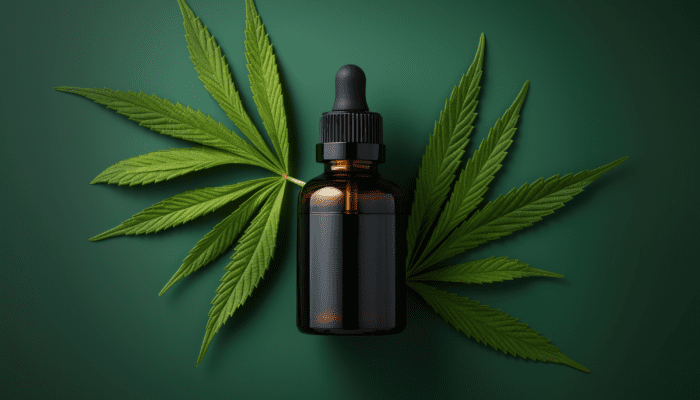What Is CBD?
Cannabidiol (CBD), has been used for thousands of years as a medicine for many ailments (1), but what is it?

CBD is one of the major components of the Hemp plant, Cannabis sativa. Although the plant is comprised of over 100 cannabinoids, CBD is the most prolific. Unlike what many would associate with marijuana smoked at a house party, CBD is not psychoactive, meaning it does not get you high. That is reserved for some of the other constituents, such as the tetrahydrocannabinol (THC) (2).
CBD has been the subject of vast interest in the past few decades, especially considering it works as a therapeutic medicine for an incredibly large variety of different disorders (3). This is especially so in products containing high-quality CBD, such as that by Silver Lion Farms. But how does this therapeutic effect work?
How Does CBD Work?
CBD elicits its very beneficial effects on the body through the endocannabinoid system. If your biochemistry is not up to date, do not worry. Think of the endocannabinoid system as similar to your front door lock. Essentially, the receptors, CB1 and CB2, are the lock and CBD is the key (4). When CBD is present in the body, it binds with CB1 and CB2, much like opening your door.
The Cascade
When CBD binds with CB1 and CB2, this causes a chain of events, like the events that occur with you turning the key in the lock to open the door. This “cascade” of processes causes the tissue in your body to behave differently. For example, in your brain, where there is a large number of CB1 and CB2 receptors, CBD can alter the concentration of neurotransmitters released and can modify how you feel (5).
Not only can CBD work on your brain, but it can also work on your body to modify the inflammatory system. Now, this is important, especially for conditions such as arthritis. When CBD is present, it causes the body to produce less of the hormones and cells which cause tissues in the body to swell, or become inflamed (6). This has a big impact on individuals with arthritis, as it can alleviate the pain often associated with swelling (7).
Can CBD Reduce Pain Associated with Arthritis?
The influence of CBD on pain is not a new idea. Originating in China, Cannabis sativa has been used for thousands of years for the treatment of conditions including pain. Because of its long history in reducing the level of pain for many different conditions, it is no surprise that CBD is a fantastic pain reliever for arthritis patients.
Not only can CBD help reduce pain, but it also protects the joints affected. CBD administration into mice that had arthritis in two or more joints reduced the amount of pain they were in, as well as slowing the progression of the disease and protecting joints that were not yet affected (10).
How Does CBD Reduce Pain?
So, how does CBD work to reduce pain? CBD works with the endocannabinoid system to inhibit the cells in the body from taking up and processing the molecules which activate pain (11). In a nutshell, by reducing the concentration and activity of the molecules which signal to the body you are in pain, you are reducing the amount of pain you feel. This can be further applied to other injuries and diseases, such as sciatic nerve injuries or neuropathy (12).
Can CBD Also Help with Inflammation?
The anti-inflammatory effects of CBD are well known and have been the subject of scientific interest for several decades. Like pain, CBD works with the body to reduce the number of signaling molecules that cause inflammation (13). But, how are these signaling molecules reduced?
Cytokines
For arthritis, a significant amount of inflammation is mediated by an increase in cytokines. Cytokines work by increasing the blood flow in a body part or joint, resulting in inflammation. However, this is where CBD can come in (14).
It has been found that daily oral doses of 25mg/kg of CBD can reduce the number of cytokines in affected joints as well as increase the amount of collagen in these joints, acting as a protective barrier (15).
Nitric Oxide
CBD has also been shown to reduce the concentration of some free-radicals, including the infamous nitric oxide. Nitric oxide can induce chronic inflammation and cause neuropathy pain in individuals who have suffered sciatic nerve injury (16). Nitric oxide is also the culprit in causing pain in a large number of disorders and injuries (17). Happily, CBD can inhibit the production of nitric oxide, as well as reducing the concentration of nitric oxide in the body. In a way, CBD acts as a scavenger, hunting out nitric oxide, and stopping it in its tracks (18).
The Bottom Line
CBD has been around and treating ailments, such as pain, for thousands of years. When considering arthritis pain, this is no different. Many investigations have shown CBD can reduce both pain and inflammation typically experienced by arthritis patients. By working on both the body and the brain, CBD is a fantastic and natural addition to help combat this debilitating disease.




